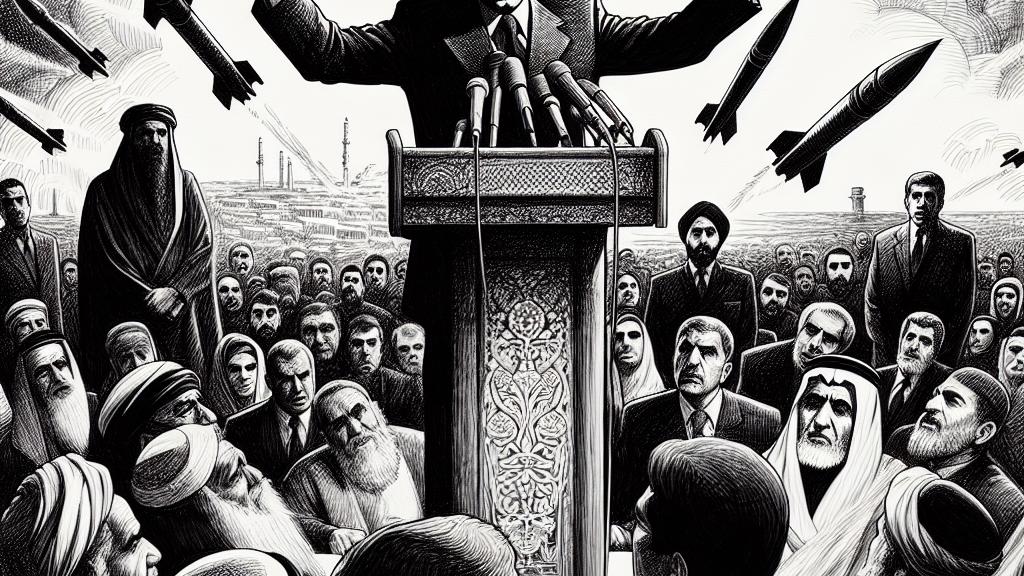Iran's Commitment to Its Missile Programme: President Pezeshkian's Remarks
Overview
- President Masoud Pezeshkian asserts Iran's firm commitment to its missile program for national security amidst regional tensions.
- The introduction of advanced missiles like the Khoramshahr reflects Iran's determination to modernize its military capabilities.
- Accusations of missile technology transfers to Russia amplify diplomatic strains, raising significant international concerns.

Iran's Stance on Missile Development
In a bold announcement that reverberated across the geopolitical landscape, Iranian President Masoud Pezeshkian declared that Iran's missile program is non-negotiable. This statement arises from a fundamental belief in the necessity of military deterrence, particularly in a region rife with conflicts. Pezeshkian highlighted the recurring violence in Gaza, where, as he pointed out, Israel has unleashed a barrage of missiles. He contrastingly noted, "If we don’t have missiles, they will bomb us whenever they want, just like in Gaza," effectively framing Iran's missile capabilities as essential for national survival. This assertion not only reflects Iran's deep-seated concerns over its security but also reveals the nation's strategy to counter perceived threats through military strength.
Technological Advancements in Iranian Missiles
Additionally, Iran is clearly on the path of military modernization, as evidenced by the recent unveiling of the Khoramshahr missile. This state-of-the-art missile signifies a significant technical leap, showcasing Iran's desire to enhance its defense systems. The Khoramshahr can be launched in approximately fifteen minutes, a stark improvement compared to older models, illustrating Iran's commitment to rapid response capabilities. This missile is engineered for a considerable range, potentially striking targets several thousand kilometers away, thus demonstrating Iran's ambition to project power and influence in the region. Such advancements are not merely technical; they serve as symbols of national pride and resilience, capturing the public’s imagination and reinforcing support for the government’s defense narrative, especially in an age where technological prowess is closely linked to security.
International Implications and Reactions
However, this steadfast focus on missile development has not gone unnoticed by the international community. The United States and its allies have raised serious alarm bells over Iran's alleged transfers of missile technology to Russia in the context of the ongoing conflict in Ukraine. Pezeshkian, while addressing these concerns, issued a poignant plea for balance in international discourse, challenging Western nations to address Israel's military capabilities. He provocatively stated that before expecting Iran to disarm, other nations must first call for disarmament in Israel, thereby highlighting what he perceives as a glaring double standard. This narrative not only complicates Iran's relationship with the West but also positions the country as a defender of perceived injustices in regional security dynamics. As this multifaceted situation unfolds, it exemplifies the intricate dance between defense, diplomacy, and the strategic imperatives that define modern geopolitical engagements.

Loading...